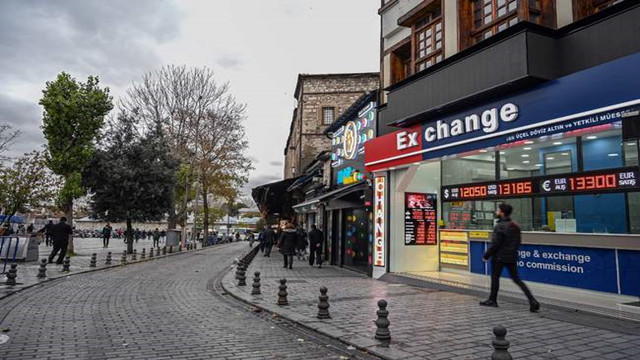Is it time to say goodbye to the nickname "Turkey Nation"?
Last month, Turkish President Recep Tayyip Erdogan signed a communiqué saying he would change the English spelling of Turkey from "Turkey" to "Türkiye." "Türkiye" is the Turkish spelling in Turkish. Turkey also demanded that the spelling of French and German Turkey be changed to "Türkiye".
Turkish officials also revealed that the new name would be officially registered with the United Nations within weeks. Since the lowercase "turkey" mainly means turkey in English, turks are quite critical of using the word to represent their country.
Zou Zhiqiang, a researcher at the Middle East Research Center of Fudan University, told the first financial reporter that Turkey's change of foreign name is mainly for political motives, mobilizing nationalist sentiment on the occasion of the 100th anniversary of the founding of Turkey in 2023; from a deeper level, it is a manifestation of identity politics.

Turkey has requested a name change
In November, where Thanksgiving falls in the West, most people's first reaction is to turkey when asked what the average American and Canadian means. According to the Oxford Dictionary, "turkey" also means failure and stupidity in North American slang, full of negative energy.
Turkish state media Turkish Radio and Television (TRT) also said in its explanation of the name change that if the word Turkey is entered into Google Engine, the result is often a picture representing the image of Turkey, mixed with a series of other pictures.
So in a communiqué signed on December 3, Erdogan said the new writing "best represents and expresses the culture, civilization and values of the Turkish nation." The communiqué also made it clear that in the future, the Turkish Government will strengthen the logo of "Türkiye" in all activities and correspondence within the scope of its functions.
The first financial reporter noted that government websites such as the Turkish Presidential Palace, as well as Turkish state media Anadolu News Agency and Turkish Radio and Television Have used the term "Türkiye" in English reports. Since there is no ambiguity in Turkey in the Chinese, the word "Turkey" is still used in the Chinese pages of the Turkish official bodies.
Senior Turkish officials indicated that they had communicated with United Nations agencies about the change in the name of a registered country and that there was no obstacle on the part of the United Nations to the state's initiative to request a name change. However, the letter "Ü" in "Türkiye" is not a commonly used Latin alphabet, and may be replaced by the letter "U" in the later period.
Erdogan also instructed in the communiqué that all goods made in Turkey in the future need to be labeled "Made in Türkiye". In January 2020, the Turkish Exporters Conference (TIM), representing 83,000 Turkish exporters, made a similar appeal.
Coincidentally, Kazakhstan, which has good relations with Turkey, has also been planning to change its name in English spelling. According to Xinhua News Agency reported on January 20, the Kazakh Olympic Committee released the official team uniform of the Kazakh Olympic delegation to the Beijing Winter Olympic Games on the 20th. For the first time, the Latin version of "Kazakhstan" appeared on the team uniform of the Harbin Olympic representative team, "QAZAQSTAN".
Turkey's economic challenges
For Turkey's name change plan, Steve H. Hanke, a professor of applied economics at Johns Hopkins University in the United States, said bluntly on January 18 that instead of focusing on the name, Turkey should think about high inflation rates. Hank is known for his involvement in multinational currency reforms.
According to data released by the National Bureau of Statistics of Turkey on January 3, the Turkish Consumer Price Index (CPI) rose by 36.08% compared with 2020 in 2021, of which the price index of food, transportation, living energy and other expenditure items increased significantly.
In 2021, Lila depreciated by 44% against the US dollar, and the exchange rate fluctuated sharply, falling from 7.35 to 1 at the beginning of last year to 13:1, and even fell below 18 to 1 at one point, triggering the central bank to sell the dollar and trigger a circuit breaker in the stock market. Since then, after Turkish President Recep Tayyip Erdogan announced a series of measures to stabilize the exchange rate and deal with inflation, the lira's exchange rate against the dollar has soared by nearly 50%, but since then the lira has once again entered a downward channel.
Inflation and currency depreciation pose enormous challenges to Turkey's current economic development. On January 3, Turkish President Recep Tayyip Erdogan said at a cabinet meeting that the government would take steps to restore inflation to single digits as soon as possible. Late last year, the Turkish government announced a series of reforms aimed at improving domestic supply shortages and earning more foreign exchange through stronger exports to strengthen the economy's resilience to risks.
On January 19, Erdogan called on Turkish citizens and businesses to convert their foreign currency deposits into lira, and according to people familiar with the matter, Turkey's large state-owned banks have included foreign exchange settlements in their employee performance appraisal targets to increase the proportion of customers who exchange foreign currency into lira.
Zou Zhiqiang told the first financial reporter that the depreciation trend of the lira will remain difficult to reverse in the future, but the sharp shock will hurt the economy and society greatly, and the Turkish government will strive to maintain economic growth while the lira is moderately depreciating, and avoid rapid and sharp depreciation.
Turkey will hold general elections in 2023. Erdogan took office in November 2002 and has dominated Turkish politics for the past 20 years. The current economic performance has affected Erdogan's approval rating, but he insisted that current economic policies will still be implemented to promote manufacturing and exports and reduce the impact of international markets on Turkey's monetary policy.